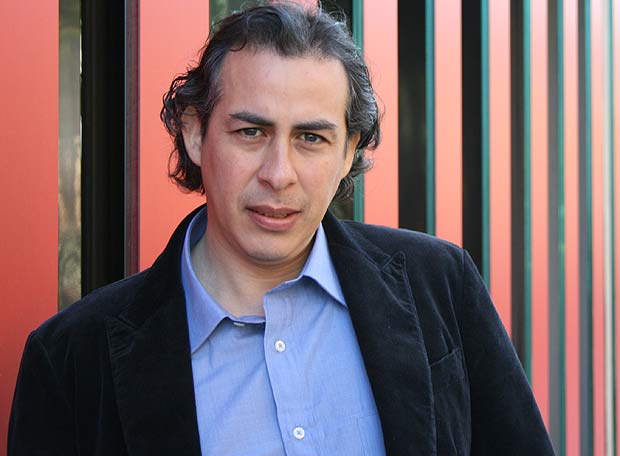El Dhamuke Cinema, símbolo de la pasión de Sudáfrica 2010 Un artículo en gawker.com, al que llego gracias a Santiago Vásquez Vaquera, advierte de las diferencias de realidades (pero no de pasión) con que se vivirá el Mundial Sudáfrica 2010 en muchos países, aunque no en EEUU resaltan. Mientras que en Inglaterra se hacen estudios para ver cómo afectará la productividad el hecho de que todos quieran ?sacarle la vuelta? al sistema y se lleven, por lo menos, un TV digital a las oficinas, en Somalia -que no logró clasificar- los guerrilleros de al Shabaab (grupo terrorista que controla el centro y su de Somalia) han prohibido a la población ver el Mundial pues se relajarían y no estarían alertas a la guerra contra el gobierno que llevan a cabo. Este artículo en The Wall Street Journal detalla cómo vivirán los somalíes el Mundial de manera Underground, gracias al Dhamuke Cinema:
These days, the only public place to watch games safely is at the Dhamuke Cinema, part of a small patch of government-controlled territory in the capital Mogadishu. Dhamuke remains one of the few cinemas al Shabaab hasn?t destroyed or shut down. The cinema hosts hundreds of teenagers from around the city to watch movies and soccer matches via satellite. Dhamuke, which is open every day from 10 a.m. to midnight, is almost always full of young people eager to escape the social strictures imposed in other parts of Somalia. Boys and girls are allowed to sit together?a taboo in al Shabaab-controlled areas. Older soccer addicts also occupy the folding metal chairs. On nights when soccer isn?t on, the audience watches whatever else is on hand?American movies, Bollywood flicks and films in Swahili and Somali. When one finishes, another reel starts rolling. Price of admission is 2,000 Somali shillings, or a few pennies. Outside of the government-run area, the cinemas will be dark because showing the games is too dangerous. Over the past few years, militants have hurled grenades into cinemas in several towns, killing and injuring people. In a Mogadishu café on a recent afternoon, young men huddled to discuss their plans for watching the game. ?If we have no jobs and can?t watch or play football it?s heartbreaking?and unacceptable,? said Said Haji, a 22-year-old Somali sipping coffee. Mr. Haji lives in the government-controlled area, and will be able to go to the cinema. ?Some of my friends don?t have that chance,? he says. Some young men say militants have deprived them of one of their only means of entertainment. ?We can?t play football, we have no cinemas to watch the World Cup and we don?t have jobs,? said Mohamed Nur, a 24-year-old World Cup fan. ?We wake up, and go to sleep, alone.? But not all Somali soccer fans have been dissuaded. People who can?t find a cinema are likely to tune into local radio stations that broadcast soccer matches, which haven?t yet been banned by al Shabaab. They can also look up scores in Internet cafés. and even watch football online. And at informal gatherings, men of every age will debate the merits of their favorite teams late into the night?and as it happens in so many places, sometimes come to blows.
Por otra parte, en el Perú ya se mencionó que en algunas zonas de Lima (por ejemplo, la Molina) no se podrá ver el Mundial en señal digital. Un desastre.

